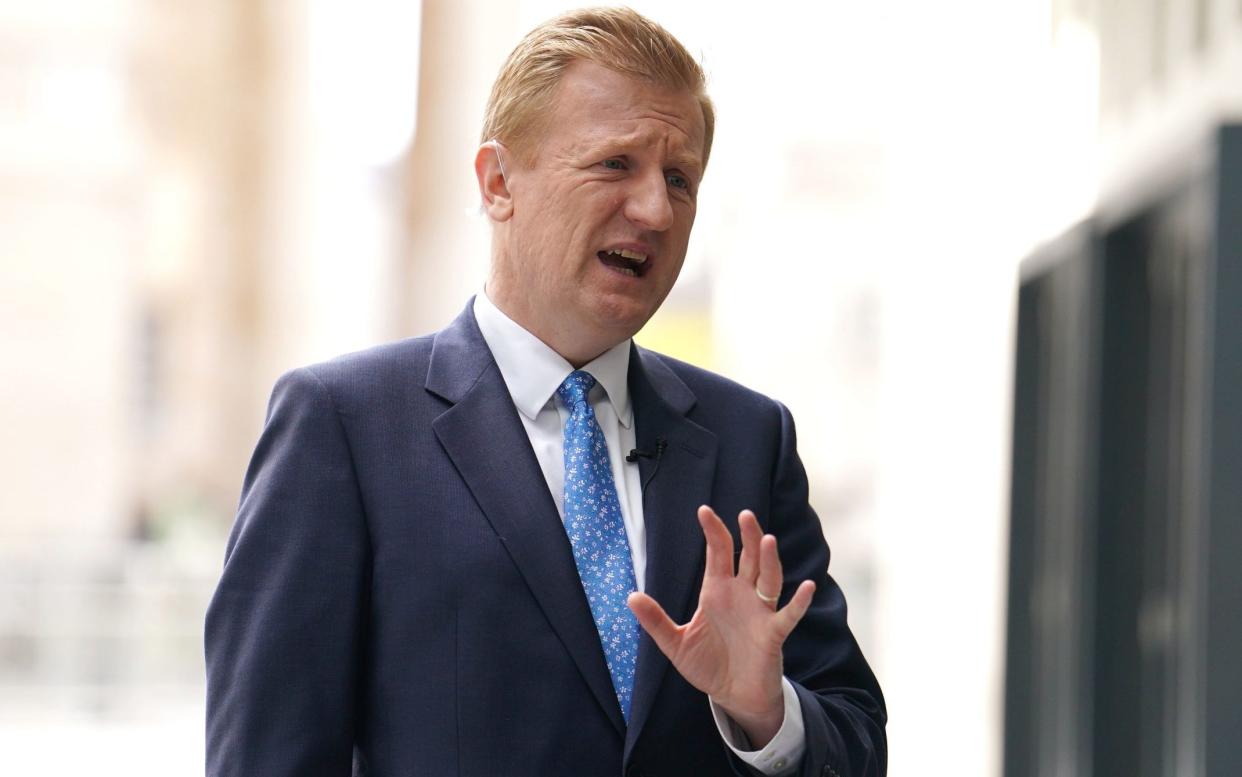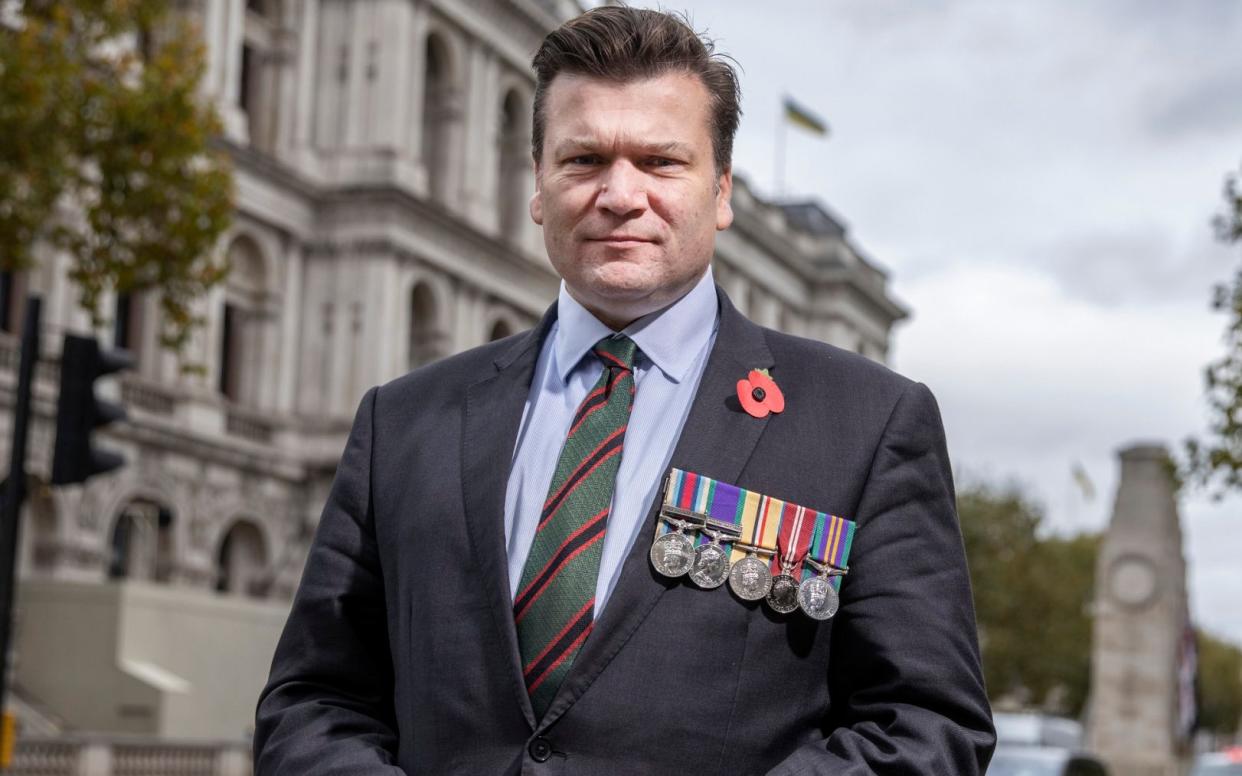Britain is ready for war, insists Oliver Dowden

Oliver Dowden has insisted that former defence ministers are wrong to say Britain is not prepared for war.
Mr Dowden, the Deputy Prime Minister, said the Government was “making good progress against rising threats” in response to warnings from James Heappey and Ben Wallace that provisions for the outbreak of conflict were inadequate.
Writing for The Telegraph, Mr Heappey, the former Armed Forces minister, said only Whitehall officials from the Ministry of Defence had turned up to an exercise about how the UK would be governed from a wartime bunker.
Mr Wallace, the defence secretary until last year, said too many people were “relying on hoping” that current tensions would ease.
Asked about their remarks, Mr Dowden told the BBC’s Sunday with Laura Kuenssberg: “I think they’re wrong. They’re absolutely right [that] we’re in a more hostile situation than we’ve been in certainly since the end of the Cold War, possibly even before that.
“And we’ve seen threats rise across a range of vectors, not just conventional Armed Forces but cyber security, economic security, where the Prime Minister has established an economic security committee of the National Security Council, which I chair.
“We are taking action across the board, we’ve set up the National Cyber Security Centre in respect of cyber. I now take dozens of decisions daily about investment to protect our economic security.”

Mr Dowden warned the world was “going to get more dangerous as time goes on” because of hostile states including Russia, Iran, North Korea and China.
“We need to be taking action across those areas,” he said. “Of course, there’s always more to do, but I believe we are making good progress against rising threats.”
Tobias Ellwood, a third former defence minister, told Camilla Tominey on GB News that there was “a 1937 feel to our world now”, urging Britain to conduct a comprehensive defence review and brace itself for “some very difficult years ahead” .
Grant Shapps, the Defence Secretary, last week urged Nato allies to accept that we are now in “a pre-war world” and warned that those who did not spend two per cent of GDP on defence spending were playing “Russian roulette” with the future of the West.
At the start of the year, Downing Street was forced to rule out conscription after Gen Sir Patrick Sanders, the head of the Army, said British civilians would need to fight Russia to in a future war.
The British Army has shrunk to its smallest size in centuries and is predicted to have just 72,500 fully trained soldiers by 2025.
Lord Sedwill, the head of the civil service under Theresa May and Boris Johnson, told Ms Kuenssberg the world faced its “most dangerous period since the end of the Cold War”.
“I think what people are finding overwhelming is not just that but the sheer complexity of the international environment,” he said. “We have the war in Ukraine, the crisis in Gaza, much less reported conflicts all across sub-Saharan Africa and the Sahel, tensions elsewhere, risks around Taiwan, other issues in the Middle East…
“To handle all of that, to deal with climate change, to regulate AI, to deal with all of these other issues that we’re facing, we need the international community to be able to cooperate but we’re at a time of the most acute geopolitical tensions.”
The UK currently spends 2.27 per cent of GDP on defence but pleas for extra cash from ministers and Tory MPs fell on deaf ears at the Budget last month.
Mr Shapps has called on the Government to spend three per cent of GDP on defence but said any rise would be an “issue for a future manifesto”, while Tom Tugendhat, the security minister, and Anne-Marie Trevelyan, a Foreign Office minister, recently broke ranks to call for an increase to 2.5 per cent.


